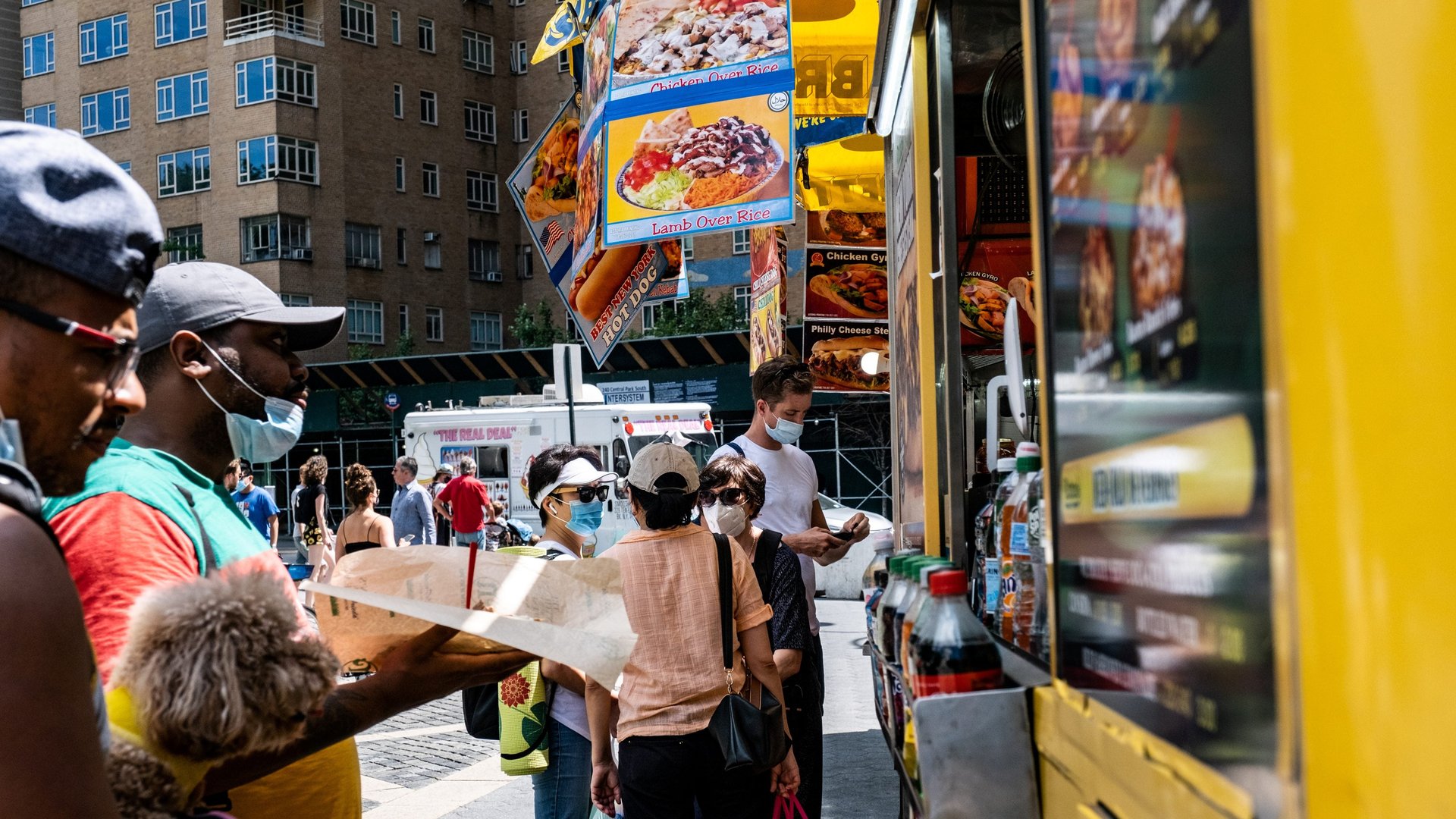New York’s smallest businesses will no longer be supervised by police
The era of New York Police Department (NYPD) officers supervising, arresting, and fining street vendors in New York City is officially over.


The era of New York Police Department (NYPD) officers supervising, arresting, and fining street vendors in New York City is officially over.
On Friday, Jan. 15, the city’s Department of Consumer and Worker Protection (DCWP) officially took over the responsibility of responding to food vending permits, health code violations, and vendor operations from the NYPD.
At-risk demographics
Street vendors are among some of America’s most vulnerable businesspeople, due to their impermanent locations, changing weather conditions, often low annual wages, and multitude of safety risks. Many of the operators in New York are immigrant Hispanic residents who commute from outer boroughs with incomes that have to support multiple people, according to a 2019 survey by the Street Vendor Project. There has also been a cap on the number of vending permits since the 1980s, according to New York Magazine’s Grub Street, resulting in inflated prices on the black market and multi-year waiting lists.
A long path to changes
In June of last year, New York City mayor Bill de Blasio said moving oversight to the consumer agency would allow police officers to focus on major areas of crime, according to local news station ABC 7.
“Having Department of Consumer and Worker Protection coordinating the City’s vending policy and enforcement efforts strikes the right balance as we rethink how law enforcement resources are used in our city,” he said. “DCWP has a strong record of protecting New Yorkers, and I’m confident they’re up to the task.”
The approval came through last December, more than a year after a video went viral of NYPD officers arresting a churro vendor inside a Brooklyn subway station.
Garnering more than 2.5 million views in two days, the incident sparked outrage, including among lawmakers, on behalf of the city’s estimated 20,000 street vendors and prompted a protest. Six months later, de Blasio announced cops would stop ticketing vendors. But there were concerns about steeper fines and arrests, as well as reports of NYPD officers still issuing tickets months later.
A wider shift towards tolerance
In addition to police harassment and discrimination; street vendors have reported excessive fines and expensive permit fees in cities like Chicago, Miami, and Los Angeles.
The question of whether street vending should be enforced by police officers and Friday’s official supervision shift to a city agency follow increased awareness and discussion about the disproportionate funding police departments in many major US cities receive compared to education, public health, or social work programs.
Black communities, civil rights groups, lawmakers, and medical researchers have been pointing out this discrepancy for years. However, protests across the US in response to the death of George Floyd by a police officer in Minneapolis in May 2020 also raised awareness and helped further highlight the disproportionate arrests of Black and Hispanic Americans in many major cities.